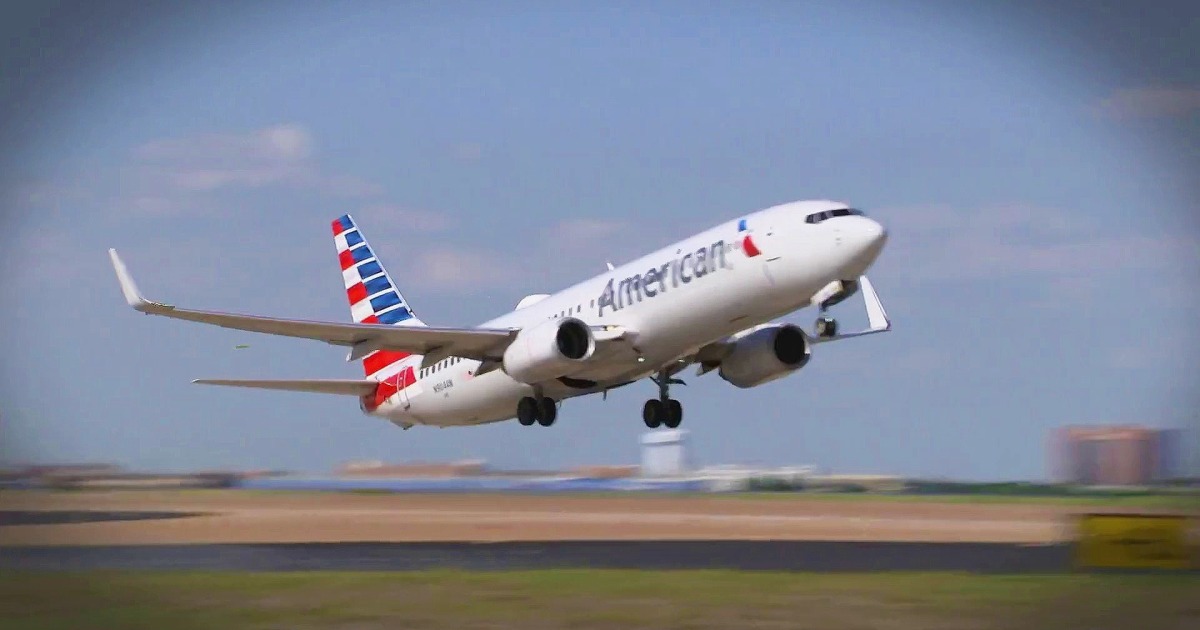Dublin, Sept. 09, 2024 (GLOBE NEWSWIRE) — The “In-flight Entertainment Systems – Global Strategic Business Report” report has been added to ResearchAndMarkets.com’s offering.
The global market for In-flight Entertainment Systems was estimated at US$4.8 Billion in 2023 and is projected to reach US$6.6 Billion by 2030, growing at a CAGR of 4.7% from 2023 to 2030. This comprehensive report provides an in-depth analysis of market trends, drivers, and forecasts, helping you make informed business decisions.
Advances in technology have allowed airlines to offer high-definition screens, faster Wi-Fi, and expanded digital content libraries. Moreover, airlines are increasingly adopting lightweight and energy-efficient systems to reduce operational costs and environmental impact, thereby aligning with the broader industry focus on sustainability.
The shift in consumer behavior towards a more digital, connected lifestyle has directly impacted the expectations of airline passengers. Today’s travelers demand continuous internet connectivity and access to their personal devices and content even while flying. This has led airlines to integrate systems that support streaming content from personal devices to seat-back screens, use of personal headphones, and even virtual reality (VR) options for a more immersive experience.
The personalization of content, where passengers can pick from an array of entertainment options to suit their tastes and moods, is becoming a norm. This customization capability is not only enhancing passenger satisfaction but also opening new revenue streams for airlines through targeted advertising and premium content offerings.
What Role Does Technology Play in Advancing IFE Systems?
Technological innovations are at the heart of the evolution of IFE systems. High-speed satellite internet has become more accessible, enabling constant connectivity even at 35,000 feet. The integration of IoT devices with IFE systems is another breakthrough, allowing for real-time feedback and interaction between the crew and passengers, which enhances service efficiency and satisfaction.
Furthermore, advancements in screen technology, such as OLED and 4K displays, are being incorporated to deliver sharper, crisper visuals that improve the viewing experience. Software developments also play a crucial role, as AI-driven recommendations can tailor entertainment options to individual passenger preferences based on past behavior, enhancing the user interface and experience.
Growth in the In-Flight Entertainment Market Is Driven by Several Factors
The growth in the in-flight entertainment market is driven by several factors including technological advancements, increased demand for high-speed onboard internet, and the rising number of long-haul flights which necessitate superior entertainment solutions to enhance passenger experience. Airlines are investing in advanced IFE systems to differentiate themselves from competitors and attract more customers by enhancing in-flight experience.
The growing trend of retrofitting older aircraft with new IFE systems and the increasing number of new aircraft equipped with advanced connectivity solutions are also significant growth drivers. Furthermore, consumer expectations for continuous digital connectivity and personalized content have pressured airlines to upgrade their systems. The economic growth in emerging markets has increased air travel frequency, thereby boosting the demand for enhanced IFE systems globally. These factors collectively propel the IFE market forward, indicating a robust growth trajectory in the coming years.
Key Insights:
- Market Growth: Understand the significant growth trajectory of the IFE Hardware segment, which is expected to reach US$4.0 Billion by 2030 with a CAGR of a 5.4%. The IFE Connectivity segment is also set to grow at 3.4% CAGR over the analysis period.
- Regional Analysis: Gain insights into the U.S. market, which was estimated at $1.3 Billion in 2023, and China, forecasted to grow at an impressive 8.0% CAGR to reach $1.4 Billion by 2030. Discover growth trends in other key regions, including Japan, Canada, Germany, and the Asia-Pacific.
Report Features:
- Comprehensive Market Data: Independent analysis of annual sales and market forecasts in US$ Million from 2023 to 2030.
- In-Depth Regional Analysis: Detailed insights into key markets, including the U.S., China, Japan, Canada, Europe, Asia-Pacific, Latin America, Middle East, and Africa.
- Company Profiles: Coverage of major players such as Gogo Business Aviation LLC, Panasonic Corporation, Rockwell Collins, Inc., and more.
- Complimentary Updates: Receive free report updates for one year to keep you informed of the latest market developments.
Key Attributes:
| Report Attribute | Details |
| No. of Pages | 244 |
| Forecast Period | 2023 – 2030 |
| Estimated Market Value (USD) in 2023 | $4.8 Billion |
| Forecasted Market Value (USD) by 2030 | $6.6 Billion |
| Compound Annual Growth Rate | 4.7% |
| Regions Covered | Global |
Key Topics Covered:
MARKET OVERVIEW
- Influencer Market Insights
- World Market Trajectories
- In-flight Entertainment Systems – Global Key Competitors Percentage Market Share in 2024 (E)
- Competitive Market Presence – Strong/Active/Niche/Trivial for Players Worldwide in 2024 (E)
- Global Economic Update
- Introduction
- A Peek into Evolution of In-Flight Entertainment Over the Years
- Global Commercial Airlines Passenger Traffic Volumes 2013-2019F
- Global Connected Commercial Aircraft by Region (2017)
- Leading Inflight Internet Service Providers
- Market Share of Leading Inflight Wi-fi Service Providers
- Leading Players in Inflight Connectivity market by Market Share
- Global Number of Airlines Offering in-Flight Wi-Fi Connectivity (2016-2020)
MARKET TRENDS & DRIVERS
- Rising Passenger Expectations for On-Demand Content Spurs Demand for Advanced In-Flight Entertainment Systems
- Advancements in Satellite Technology Propel Growth in High-Speed Connectivity for In-Flight Entertainment
- Trend Towards BYOD (Bring Your Own Device) Expands Addressable Market for Wireless Entertainment Solutions
- Increasing Focus on Enhancing Passenger Experience Strengthens Business Case for In-Flight Entertainment Investments
- Rising Adoption of Personalization in In-Flight Entertainment Systems Drives Market Growth
- Integration of In-Flight Entertainment with Internet of Things (IoT) Expands Opportunities for Connected Cabin Experience
- Growing Popularity of Streaming Services Throws Spotlight on Cloud-Based In-Flight Entertainment Solutions
- Emergence of Virtual Reality (VR) and Augmented Reality (AR) in In-Flight Entertainment Generates New Opportunities
- Increased Adoption of Data Analytics to Understand Passenger Preferences Propels Growth in Customized Content Offerings
- Rising Demand for Seamless, Multi-Device Connectivity Enhances Market for In-Flight Entertainment Solutions
- The Impact of 5G Technology on Improving In-Flight Entertainment Systems and Passenger Connectivity
- Growing Emphasis on Lightweight, Energy-Efficient Hardware Drives Innovation in In-Flight Entertainment System Design
- Major Trends in In-Flight Entertainment Systems Market
- Advances in Connectivity Drive Opportunities for In-Flight Entertainment Systems
- Virtual Reality Emerges as the Next Phase in Inflight Entertainment
- Lifting of Restrictions on Mobile Devices by CAAC Unfurls Opportunities for In-Flight Connectivity Vendors
FOCUS ON SELECT PLAYERS(Total 42 Featured)
- Gogo Business Aviation LLC
- Panasonic Corporation
- Rockwell Collins, Inc.
- Thales Group
- Zodiac Aerospace
For more information about this report visit https://www.researchandmarkets.com/r/usopaj
About ResearchAndMarkets.com
ResearchAndMarkets.com is the world’s leading source for international market research reports and market data. We provide you with the latest data on international and regional markets, key industries, the top companies, new products and the latest trends.









